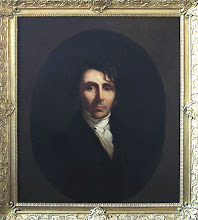I have been thinking a lot about war and peace lately. War was my profession for many years, although in keeping with the vision of Air Force General Curtis Lemay, I believed that “peace” was my profession – peace through the deterrence of armed force. This was my calling and I proudly wore “my country’s cloth” as a United States naval officer for twenty-five years. I still believe that the United States Navy is one of our country’s greatest institutions because it is the sum of many good men and women who embrace core values that I cherish – Honor, Courage, and Commitment. Those core values informed how I led the Sailors at Guantanamo. I hope those core values will inform how I teach young children in my new career as a public school educator.
And yet, because of my professional education and experience, I have become a pacifist. I chose this path not out of naiveté or hopeless dreams but because I came to realize that there is no such thing as a truly just war and that there are alternatives to armed conflict that we seldom explore but are no less reasonable and practical. Interestingly, I arrived at this epiphany preparing one of the sermons I gave over the summer as part of the Moon landing – commemoration series. If you are interested and missed it, you can read it at: http://www.channingchurch.org/Archives/Talks/2009/07-19-Beall-We_Came_In_Peace.pdf.
Of course, this is my opinion and I know that it is not widely shared in our society and not even shared by everyone in this church. And yet I believe the issue of war and peace is the fundamental issue of our times. We cannot address the urgency of distributive injustice, climate change, or the other pressing needs of oppressed mankind until we decide how much of our scarce resources we will dedicate to war and how much to peace, to healing our planet, to healing our fellow man. I believe that, as a church, we must confront this question and decide where we stand.
A few years ago, as President of Channing, I talked a lot about vision as we worked together to come up with one for our church – to chart its course into the future. In that painstakingly crafted document, representing a consensus within our community, we pledged to be a catalyst for, “Peace, justice, and respect for all people and our planet.” How will we do that? I invite you to join me in thinking about that through the venue of two programs organized by our minister. The Peacemaking Study Action Issue series that continues following church services this month and the program offered by the Rev. Richard Gilbert in February. The times demand that we think and act now.
Tom Beall
Co-chair of the Social Action Committee
